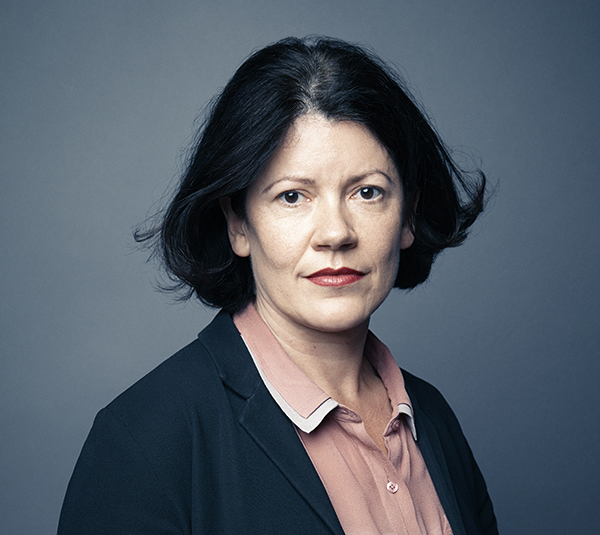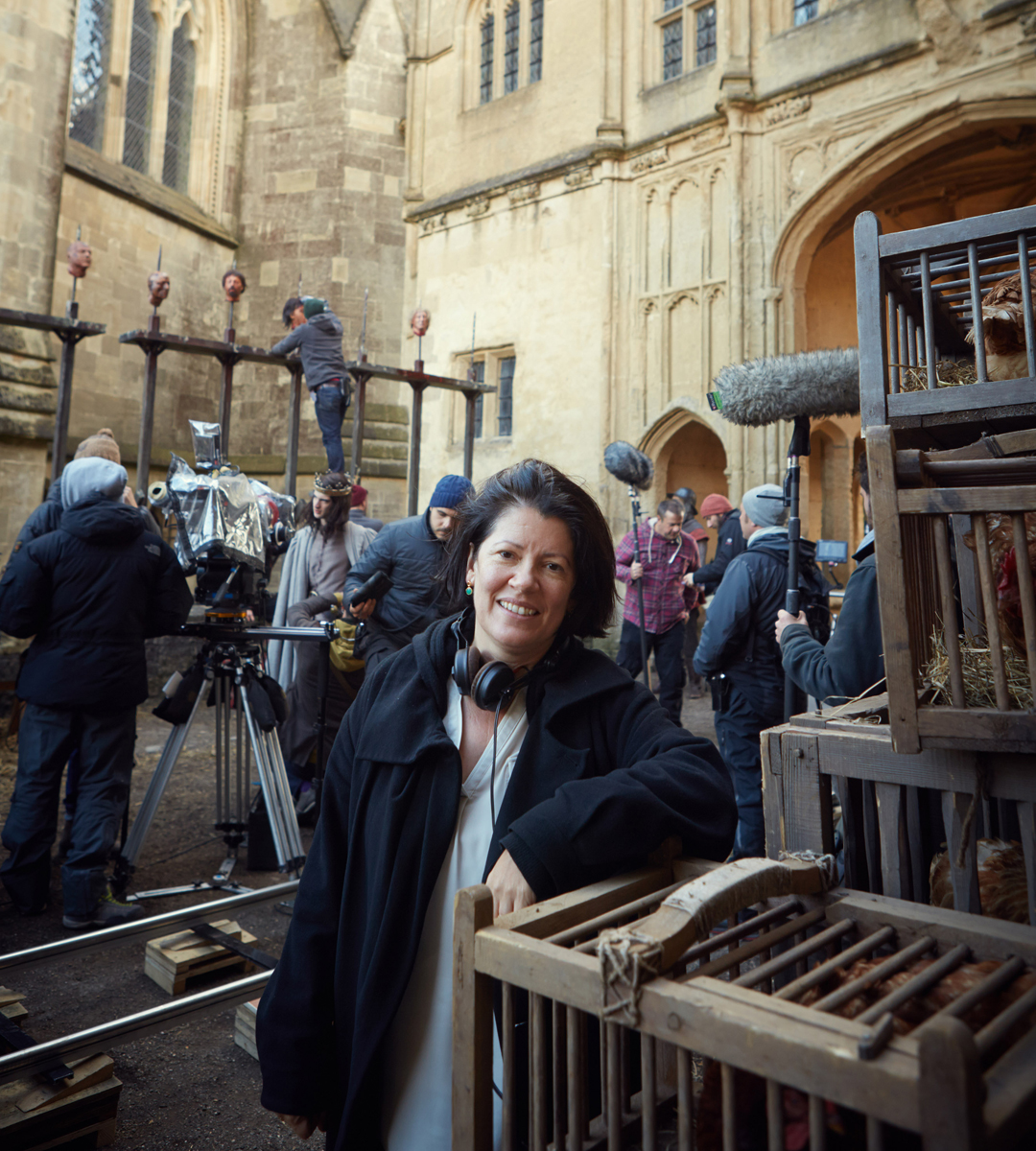
- Industry
Dame Pippa Harris: A Woman Producer on Gender Disparity
“You can’t underestimate the power of women role models.” Says Dame Pippa Harris, a producer, and one of the founders of Neal Street Productions along with Sam Mendes and Caro Newling. “When I started in the business 21 years ago there were already women to look up to in the UK, like Verity Lambert (the first producer of the popular series Dr Who), and Jane Tranter who was my boss when I started in television. At the time she was working for ITV and subsequently ran BBC Drama in the UK and BBC Worldwide Productions in LA. Seeing women succeeding in positions of power allowed me to see a path ahead. It allowed me to believe that if I started down the route of becoming a producer, it could lead to being an executive producer, or a Commissioner. Those seemed like realistic options ahead of me and their success encouraged me.”
She chuckles at the notion that one needs a man at her side to get projects funded. “It’s not necessary at all. There are plenty of women Commissioners. If you are looking for funding you might be speaking to Christine Langan who runs BBC films or for TV drama it could be Polly Hill at the BBC or Anne Mensah at Sky. None of these women make you feel like you need to have a man by your side!” The notion on her lips sounds outdated and foreign. “I can’t think of ever feeling like I was discriminated against, or that it was tougher for me to go in and get the money out of a financier because I was a woman.” When pushed on the idea that men and women work differently as a justification for men being a first choice in many positions of power, she explores the idea but seems aghast at the notion. “I’ve not thought if women do something different as a producer. I don’t think they do, really. I don’t know how men would do things differently.”
So if it’s not the work, what are some of the reasons to explain gender disparity behind the scenes in entertainment? Here Dame Pippa has some suggestions. “One of the reasons it’s still so tough for women directors is that in recent decades, there were very few women in the UK directing film and TV. Antonia Bird (EastEnders, Priest, Care, Inspector Morse) is one of the very few that springs to mind who was working regularly through the 1980s and 1990s. If you look at the raw data coming out of film school in the UK its roughly 50/50 men and women, but ten years out its whittled down to about 14% women directors.” “It’s tough for women directors.”
Why is it more difficult for women to direct? Talking from London, Dame Pippa Harris points out that there isn’t just one explanation. There are historical, social, and current pressures that result in gender disparity in key positions behind the camera. “There are a whole number of issues that overlap.” She notes. “Traditionally women are child rearers. When you have a baby there is a desire to take time off work, and an expectation and acceptance of that in the work place. When men become fathers no one necessarily expects them to take paternity leave or to change their future work pattern.”
Indeed Harris took time off when she became a mum. As a producer, however, she was able to work from home. Inspired by the women in her family, her own mother translated and edited Freud and her grandmother was a surgeon and doctor, Dame Pippa explains, “in my family women always worked. It was expected you’d go to university, get a good degree and find a job. That expectation that you’ll spend your life working isn’t the case with all women. It’s one area people have to tackle.” She’s not implying that it’s easy to do and admits to the good fortune of having a husband (the screenwriter Richard McBrien) who is also able to work from home and between them, they are able to trade off parenting duties. But sociologically, childcare is an issue that has to be addressed for genders to reach parity.
Another issue is inclusion in choice. As a woman in power, she notes that when considering talent for a project, she is often presented with a list where women are under represented. “There’s a strange thing I’ve observed. When presented with a list of writers or directors for a project, there might be only two women on the list. You have to interrogate it, like, ‘Can’t we find more?’ And of course there are others out there.”
“Somehow their first position is to go to the male candidate,” but as a producer she can address that inequality. Call the Midwife Season Three made history by being directed solely by women. And a note to studios – it was the most watched UK drama at the time. If your first choice is to solely consider the white male you are, “cutting out swathes of the population. It’s not a sensible business choice.” She states the reality that should be self-evident. “Call the Midwife was cited as the highest rated drama series in the UK by quite a margin. It’s produced by women, stars an ensemble female cast, the series creator, Heidi Thomas is a woman, as are the majority of the writers and directors, plus it’s commercially and critically successful and hugely popular.’ She notes proudly. ‘So it’s nonsense to think that making series by and for women is not profitable’.
Another mitigating factor in equal gender representation across job descriptions is how strong women are framed by others. “Anecdotally, over the years, I’ve heard said of women directors, “You don’t want to mess with her; she’s very tricky, and you go, ‘What do you mean by tricky?’ The reply comes back, ‘She’s very opinionated, very stubborn.’ Then you look at the woman’s work and you go, ‘Hmm, actually the work is pretty good.’” She explains how the same traits are described in men. “When it’s a man who is tricky and opinionated it seems that he’s a real auteur. He’s very individual.” The feeling is, “Yes, he’s a little difficult but he’s such a talent. It’s somehow accepted that men can be recalcitrant and bullish. Not willing to cut the scene that you are asking them to cut, but when a woman does it, its seen as beyond pale that she shouldn’t be so forthright about her opinions.” She clarifies. “Actually what they are talking about is someone intent on defending her vision and that’s for a very good reason.” “I’ve come across that a number of times with women directors.”

The other onus, not just on female producers but all decision makers, writers included, is to keep an eye on the portrayal of women in drama. “Far too often when you see a woman in a drama she’s had her head bashed in. Her corpse is being crawled over by some detective or other.” Points out Dame Pippa about the nefarious subtext to images. “I think it’s very important that we are mindful of the messages sent out. The way women are seen in dramas is hugely important. I want to be making dramas where the lead women are doing interesting things and where they are not simply an adjunct to someone else. If all the audience is seeing is endless violence toward women, it’s not difficult to think they are going to go out and exhibit or think violence toward women is ok.
Upcoming projects produced by Dame Pippa Harris include Call the Midwife Season 5, starting April 3rd, third season of Penny Dreadful begins on Showtime on May 1, The Hollow Crown: The War of The Roses with Benedict Cumberbatch as Richard III, Dame Judi Dench as Cecily, Duchess of York and Sophie Okenedo as Margaret – due on PBS in July.